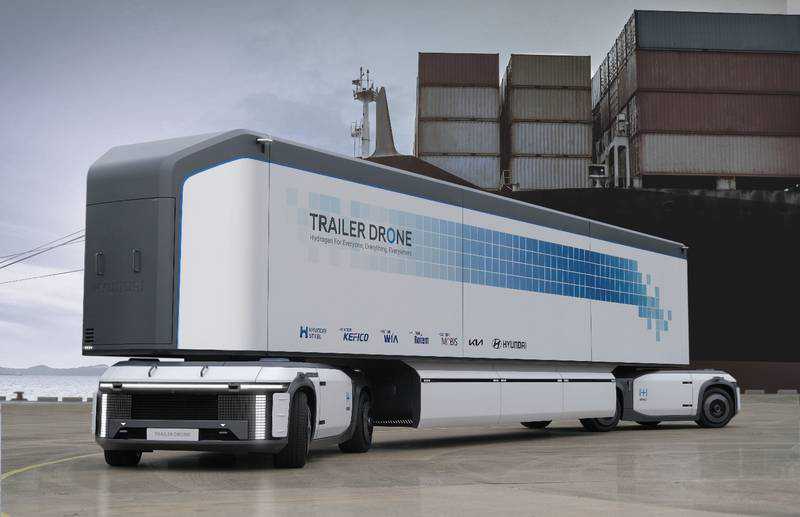Hyundai vehicles to run on hydrogen in the near future
13 September, 2021

The future of transportation is in water, or at least water vapour, according to Hyundai. The Korean giant has rolled out its vision to adopt hydrogen power as a mainstream fuel platform by 2040.
Speaking via Zoom, Hyundai’s chairman Chung Eui-sun told media that the company plans to electrify commercial auto vehicles with either hydrogen fuel cell electric or battery-electric power trains on all models by 2028.
Smaller courier vans will be plug-in battery-powered electric vehicles, while larger trucks, buses and prime movers will use hydrogen fuel cells to power electric motors for long-haul freight.
Hydrogen fuel cells produce electricity in a similar way to lithium-ion battery cells, except they don’t need charging as they use hydrogen to produce the electricity onboard.
Hydrogen stored in onboard tanks is fed to the negative side of the fuel cell, while oxygen is fed to the positive side and a catalyst splits hydrogen molecules into protons and electrons to create electricity with the “tailpipe” by-product being nothing more than water vapour.
“Hyundai Motor Group’s vision is to apply hydrogen energy in all areas of life and industry such as our homes, workplaces and factories. The goal is to make hydrogen readily usable for everyone, everything and everywhere,” Chung said. His target is for Hyundai to be the first global carmaker to have a 100 per cent hydrogen-powered range of commercial vehicles on sale by 2028.
“In addition, we want to offer practical solutions for the sustainable development of humanity, and with these breakthroughs, we aim to help foster a worldwide hydrogen society by 2040.”
Hyundai began exploring hydrogen as an automotive fuel in 1998 with its FCEV (Fuel Cell Vehicle) concept car and revealed its successor, the FCEV Tucson model in 2013, which was its first hint at mass-production. Hyundai launched the next-generation fuel cell vehicle, the Nexo in 2018, followed by the world’s first heavy-duty fuel cell truck, the Xcient fuel cell last year.
According to the Hydrogen Council, a global chief executive-led initiative of energy, transport, industry and investment companies, hydrogen energy will account for 18 per cent of global energy demand by 2050 with a market size of $US2.5 trillion. The popularisation of hydrogen energy is also estimated to help cut carbon dioxide emissions by more than six billion tonnes a year.
Hyundai has started mass-producing an improved version of the Xcient fuel cell truck with plans to tap into the 400,000 annual sales of heavy vehicles across Europe. This is in addition to developing a range of five to seven-metre-long EVs that will target the seven million yearly sales of light commercial vehicles globally by 2030. It’s also looking to produce a tractor based on the same technology to be released in 2023.
The company claims that a large part of the heavy haulage business will transition to autonomous driving and robotics, and has unveiled a driverless, fuel-cell-powered, long-haul truck concept for transporting shipping containers.
The trailer drone concept requires two fuel cell-powered bogies that can move autonomously through portside operations and tight urban environments with a range of more than 1,000 kilometres from a single fill. Its cargo can be broken down into packages using a “cluster mode”, which enables several trailer drones to travel together in an almost train-like configuration, splitting as each load reaches its destination.
A spin-off from the trailer drone concept is a rescue drone that combines with a fuel-cell bogie for critical operations such as firefighting and life-saving.
These feature an independent steering system for crab-walking in tight spaces and can carry out missions via images transmitted from its own airborne drone that’s mounted on the vehicle with up to 500km of range.
“The degree and frequency of environmental disasters is rising fast and we now face a code red warning for humanity,” Chung said.
“Hyundai seeks to offer powerful and pragmatic solutions for combating climate change via the tremendous potential of hydrogen energy.”
Source: www.thenationalnews.com
TAG(s):
